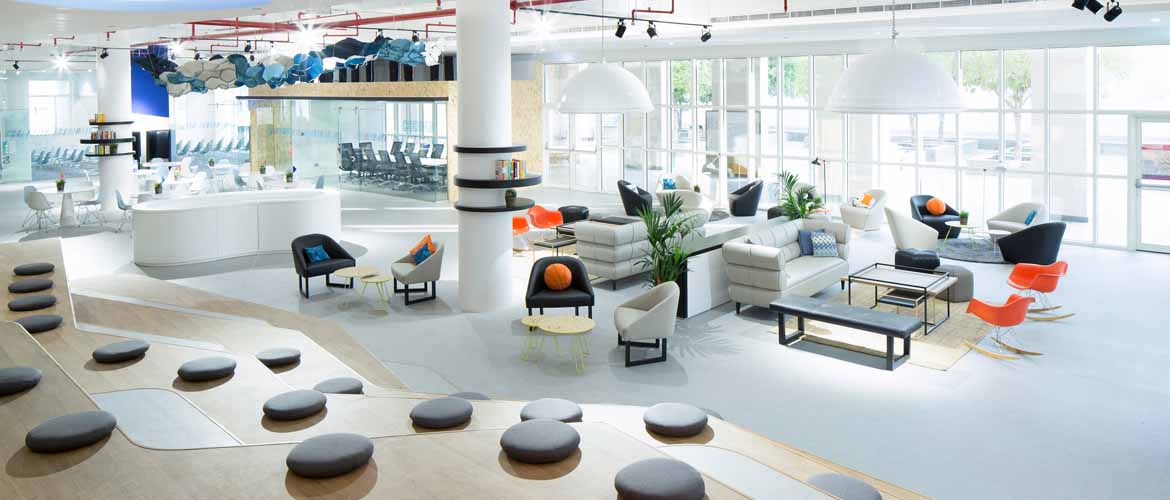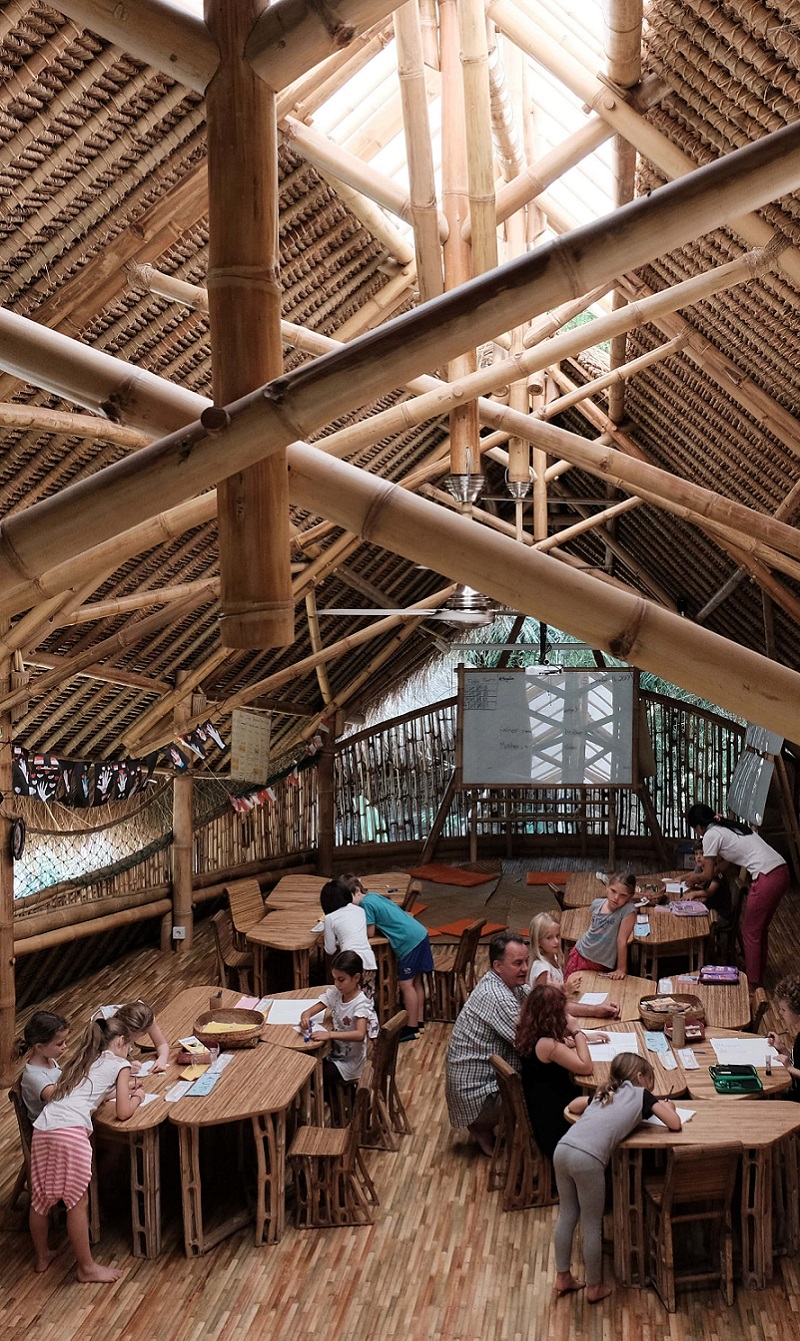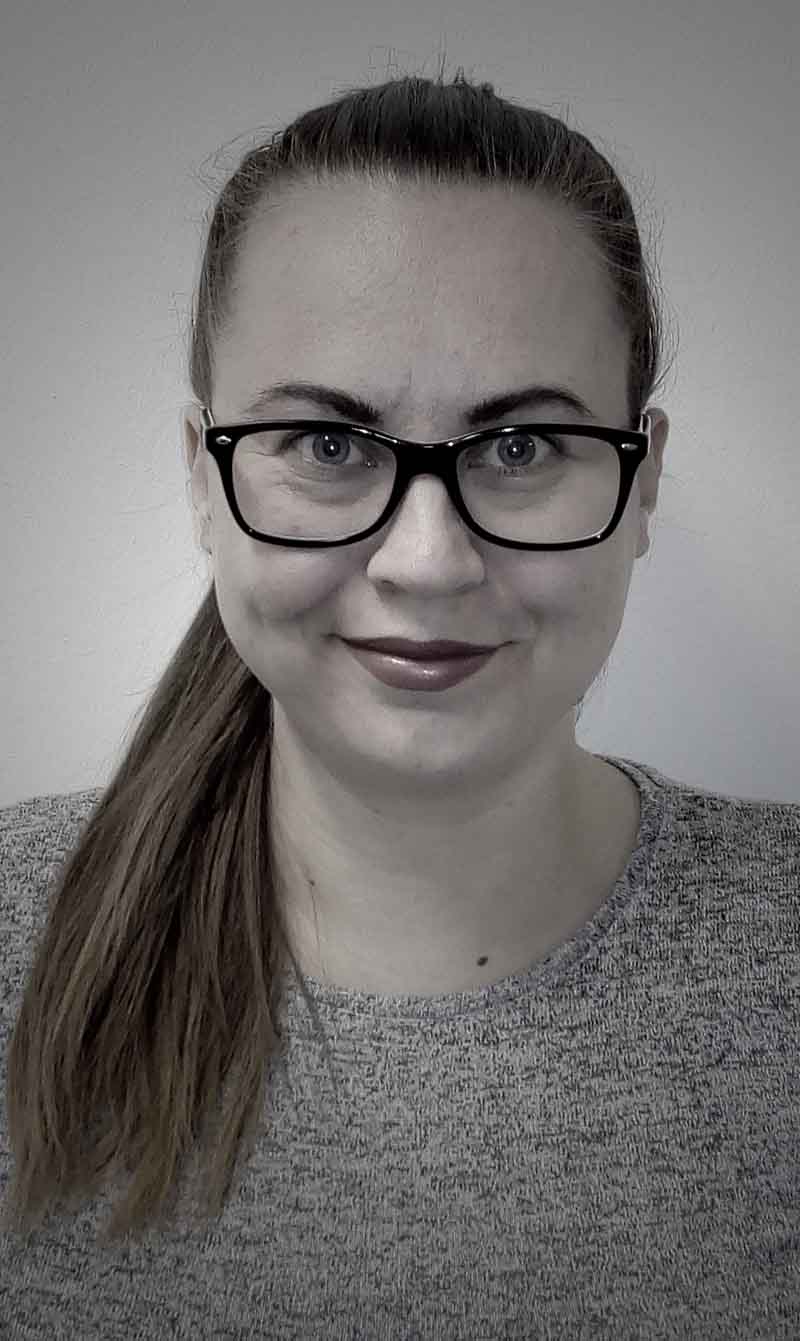Opening Up Possibilities
Examples of startup hubs in different environments not only open up possibilities for entrepreneurs but also cultivate a new generation of active job creators rather than job seekers. This article was first published in the second issue of WIEF In Focus magazine.
A Mecca for Startups
Sharjah, the third largest and third most populous city in the United Arab Emirates (UAE), has been catching the world’s attention as an emerging entrepreneurship hub. Its entrepreneurial ecosystem has the strong support of its government and the growing support from the private sector looking to collaborate and help startups grow. So, in 2016, this environment has sparked off an entrepreneurship centre called Sheraa, in Sharjah’s American University.
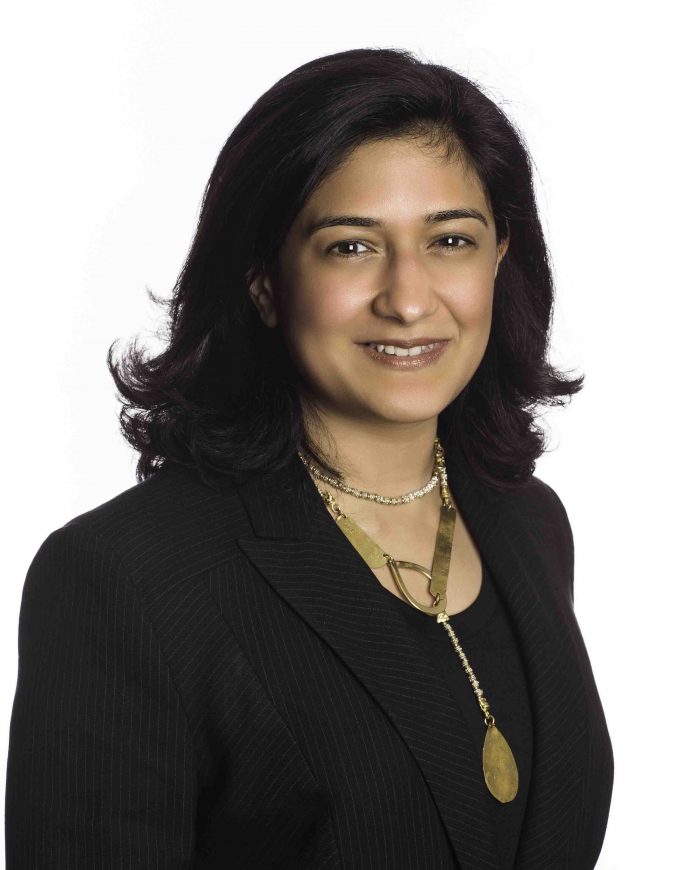
Sheraa means ‘sail’ in Arabic. In that sense, it helps startups sail toward success. ‘Sharjah has a unique talent base courtesy of UAE’s more than 20,000 student population. We’re based in the university in order to tap into that talent and create an entrepreneurial culture early on,’ explains Sheraa’s general manager, Najla AlMidfa. ‘One of the best qualities that university students and fresh graduates possess is the eagerness and willingness they bring to the table. They’re more open to possibilities, they’re original thinkers, and often, they’re looking for more than the struggle of finding employment in a saturated job market.’ This makes them more open to entrepreneurship and all the potential for success that such a path provides, making them a vital resource for both startups and corporations alike.
Sheraa supports entrepreneurs from A to Z as they embark on the journey to launch their startups – laying foundations for a thriving community of entrepreneurs who’ll contribute to the growth of UAE and the region. ‘We’ve programmes that cater to all stages of startup,’ Sharjah-born Najla reveals. Sheraa started its incubator scheme with 50 startups in early 2017. It aims to harness entrepreneurial skills of the region’s youth, be a talent hub and an incubator for innovation.
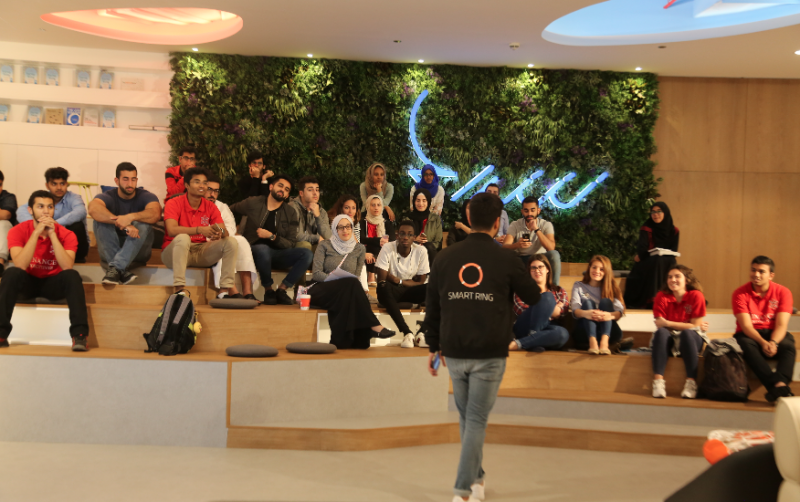
Furthermore, Sharjah has a lower cost base than Dubai. ‘There’s a need for a place like Sheraa because Sharjah and the region are filled with incredible potential. Now more than ever, as we stand on the cusp of the Fourth Industrial Revolution and a rising youth bulge, it’s the time to harness that potential and cultivate a new generation of active job creators rather than job seekers,’ says Najla. ‘We want to inspire entrepreneurship, teach relevant skills and provide a foundation on which sustainable enterprises as well as thriving careers can be built.’
Sheraa instils entrepreneurial spirit through outreach programs in different classes of the different campuses in Sharjah’s University City. It includes inspirational talks, workshops teaching the soft skills necessary for entrepreneurship – pitching your idea, for example – and business connections as well as providing attractive benefits such as equity-free funding, free business licenses and rent-free use of their co-working space.
This hands-on idea-to-startup journey, under the guidance of seasoned entrepreneurs and Sheraa’s network of corporate partners and investors, doesn’t only give students and graduates the confidence required to jumpstart their entrepreneurial ambition, but also helps position their venture’s long- term success. ‘It provides the support early-stage startups need through seed-funding, a free Sharjah-based license, rent-free co-working space, mentorship, market access, focus group tests and real-time customer engagement,’ Najla elaborates.
However, it’s more than just an incubator or accelerator for startups. ‘Our uniqueness lies in our focus on cultivating entrepreneurs and the entrepreneurial spirit from the ground up – be it through youth leadership programs, inspirational events or free workshops teaching essential skills from pitching to coding.’
Everyone’s welcome in Sheraa. ‘Every individual, irrespective of nationality, with a vision and mission to add value to the region’s economy is welcome. The idea must be relevant and viable, with a commercial footprint in the UAE. They must be willing to be based out of Sharjah, though,’ Najla reminds.
The three popular industries for startups in the UAE, according to Najla, are the food and beverage industry, innovations in technology – especially AI and blockchain – and healthcare. ‘They’re popular because a mix of both global and local economic as well as social factors play a role in what industries receive the most attention and require the most innovation,’ she explains. ‘As problem-solvers seeking to fill gaps in the market and cater to consumer interests, entrepreneurs naturally find themselves drawn to these industries.’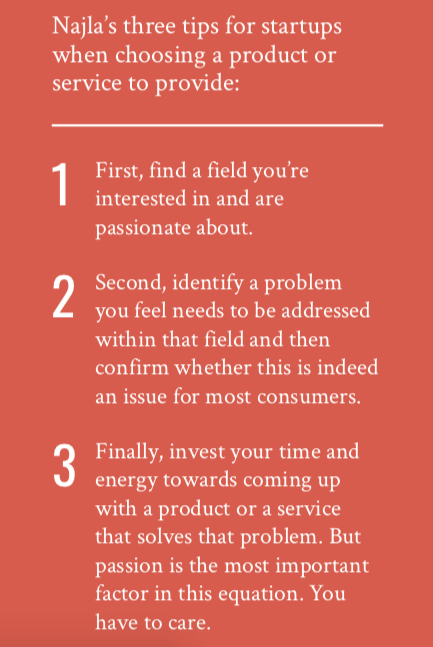
The main challenge startups face isn’t necessarily the lack of funding. ‘But rather, the lack of a network of corporations, government entities and SMEs that are willing to support them,’ clarifies Najla. ‘Sheraa seeks to change that by partnering with stakeholders to cultivate a cooperative, supportive ecosystem that helps startups grow.’ Don’t forget too, there’s the issue of culture. ‘Our culture is unaccustomed to acceptance of failure and so, we’re less open to experimentation and risks.
Both of which go hand-in-hand with entrepreneurship. This will certainly change with time as the ecosystem continues to grow. For now, it limits our innovative thinking and thus, limits what startups feel they can and can’t do.’
The limits of UAE startups going global includes cash flow to finding the right investors willing to take their business globally. ‘Finances, capital and networks form the ladder for a startup to go global, as does thorough market research,’ says Najla. ‘Rushing into developing an idea without truly understanding its nature and position in the global market could prove a threat.’
However, there are ways to overcome them. Sheraa partners organises various events with international names such as Facebook, IBM and One Young World as part of its commitment to enhance aspiring entrepreneurs’ experience and ensure business growth. Their collaborations with global players aim to support entrepreneurs and harness their creativity as well as passion to come up with innovative ideas and solutions suitable for the international market.
Sheraa’s ultimate goal is to help make Sharjah the entrepreneurial hub in the UAE and beyond. ‘Providing a one-stop shop for anyone with entrepreneurial ambitions and creating a talent pool of innovators who will help establish the UAE on the global startup map.
Just as career centres are now a staple of all leading universities, we believe Sheraa-like entrepreneurship platforms should also be a standard offering in order to continue cultivating that culture of experimentation, innovation, critical thought and creating a pipeline of future entrepreneurs,’ Najla says.

Hatching Up Possibilities in Vietnam
While lunching with colleagues, a 21-year old got an idea for a centre where young Vietnamese entrepreneurs can develop, connect, exchange knowledge and, even fail, safely. So, it came as no surprise when, in 2016, Dat Quoc Pham made it onto Forbes’ Vietnam 30 Under 30 list. He was merely 25 years old then, and four years before that he started HATCH!, a startup ecosystem builder in Vietnam. It aims to capture the value and entrepreneurship spirit forged by millennials and the future generation Z by creating a community in which each individual can connect, develop and prosper.
‘We want to expand our current space as a service business as well as create new funds to invest in our startups,’ Quoc Pham explains. ‘We see ourselves as a place where people can connect and interact with other entrepreneurs, mentors and investors. We become a value partner to our startup entrepreneurs. Entrepreneurial skills in Vietnam may not be as strong as other developed markets, but many young Vietnamese want to start a business. I think HATCH! is a perfect place for young entrepreneurs to safely develop, learn, test and even fail.’
Quoc Pham, born and bred in Hanoi and holds a bachelor’s degree in foreign trade from Hanoi University, believes that a centre like HATCH! is needed in his city. ‘Based on a research, two out of three millennials want to start a business within the next three years. Young Vietnamese – and even around the world – demand to be in a community. We’re creating and maintaining a community for these young entrepreneurs,’ he says.
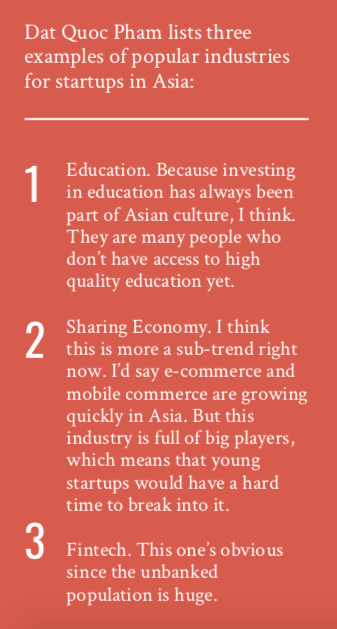
In Vietnam, according to Quoc Pham, there are 150,000 graduates per year, there are a lot of coders and living cost is relatively low. Vietnam’s GDP is booming. It’s one of the fastest growing economies and its real estate market in Vietnam is growing very fast too. ‘Of all the places I’ve been to,’ Quoc Pham says, ‘Vietnam still shows massive changes within a very short amount of time. What’s more, we have a young and growing middle class. By 2035, half of Vietnam will be a part of the global middle class. I think it’s fair to say that this is the market to be in.’
While a country’s growing GDP can certainly be a catalyst for a startup but, as Quoc Pham points out, a large population such as China or Indonesia, is helpful too. However, to go global, Quoc Pham believes, is something an entrepreneur need to think about from day one. ‘Since Vietnam’s market is small, the number of internet users and smartphone users is even smaller.
We can’t just depend on local market to grow our companies,’ he adds. ‘But the challenge here is diversity – there are many cultures, ethnic groups and spoken languages in Asia. Startups will have to adapt faster.’
‘How can a startup identify the product or service they want to provide? Well, I don’t think there’s a perfect formula for this. Many startups I work with develop their companies based on personal experiences. I don’t think there’s a perfect way to do this,’ he says.
Croatia’s Entrepreneurial Learning Centre
Entrepreneurial learning is defined as a key competence in the EU. Thus, the European Commission financially supports SEECEL, the South East European Centre for Entrepreneurial Learning, which is a regional non-profit institution based in Zagreb, Croatia. It supports structured regional cooperation in entrepreneurial learning and by 2016, has garnered 13 South East European countries cooperation in building entrepreneurial ecosystems on local and international levels. It’s also financially supported by all of its member countries of Albania, Bosnia and Herzegovina, Croatia, Kosovo, Macedonia, Montenegro, Serbia, Turkey and Moldova.
Very simply put, SEECEL, backed by strong support, shapes tomorrow’s entrepreneurs by ensuring that populations are able to think and act entrepreneurially. In building lifelong entrepreneurial learning system, the centre identifies three important elements:
1 – Entrepreneurial Student:
Students work with educational experts and practitioners to develop instruments for teaching. Also, piloting instruments in partner educational institutions and specific attention given to European Entrepreneurship Competence Framework with defined learning outcomes for whole educational system starting from early education with economic and financial literacy included.
2 – Entrepreneurial Teacher:
Teachers work with national teacher training authorities and teacher training institutions to develop and implement pre-service and in-service teacher training modules on entrepreneurship as a key competence. They also work with teachers on applying entrepreneurial learning teaching methods in the classroom implementing the impactful cross curriculum approach that learning outcomes are integrated in all.
3 – Entrepreneurial school:
The centre works with other school managements and school boards to strengthen support for entrepreneurial learning and to develop stronger school- community-business connections. It fosters interschool cooperation at national and regional levels for entrepreneurial learning. To preparing communities for Industry 4.0, schools need to be open lifelong learning lighthouses and act as a nest of entrepreneurial and digital literacy.
Croatia deems entrepreneurship as very important. It’s because the majority are micro, small and medium-sized companies and they are the backbone of Croatia, the EU and the surrounding countries. The Croatian government is very supportive of entrepreneurship, especially women entrepreneurs. There’s a strategic governmental framework in place for the long term that supports startups.
___________________
For more on the latest topics related to business, technology, finance and more, read our digital versions of In Focus magazine, issue 1, issue 2 and issue 3.
